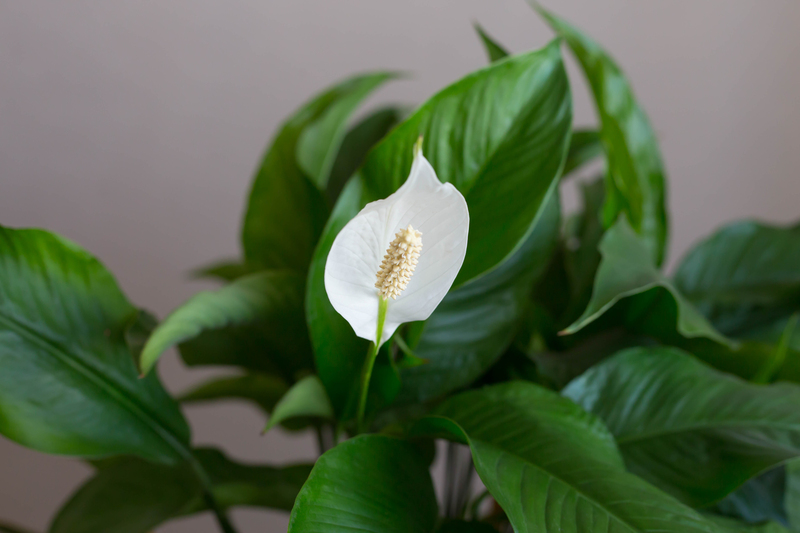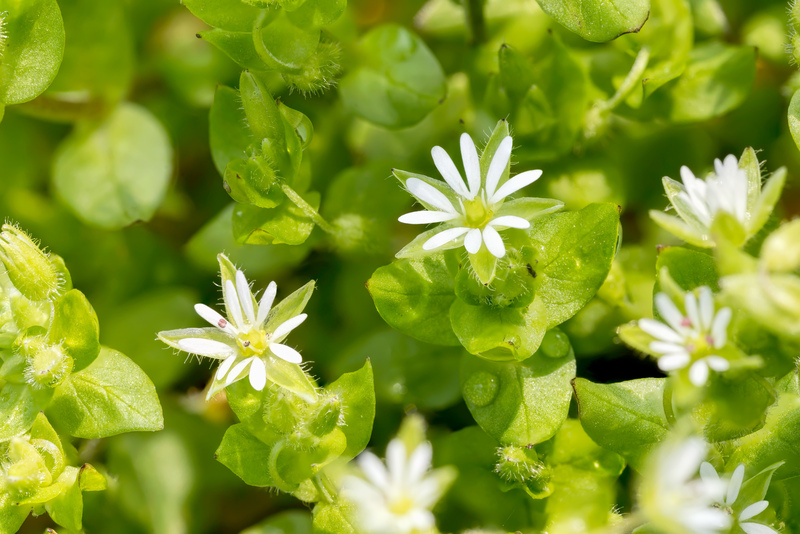Transform Your Backyard into a Tranquil Zen Sanctuary
Posted on 05/06/2025
Transform Your Backyard into a Tranquil Zen Sanctuary
Would you like to step outside and instantly escape to a peaceful, restorative retreat? Transforming your backyard into a tranquil Zen sanctuary can elevate your home environment, reduce stress, and bring a sense of harmony to your daily life. In this comprehensive guide, you'll discover how to design a Zen garden, select calming materials, choose the right plants, and incorporate mindful features that invite meditation and relaxation. Let's begin your journey to personal peace, right in your own backyard.
Understanding the Zen Philosophy: Roots of Serenity
Before you start digging or landscaping, it's important to immerse yourself in the Zen philosophy. Originating in Japan, the concept of Zen centers on simplicity, harmony with nature, and mindfulness. A Zen backyard sanctuary is not just a garden, but a living, breathing space where natural elements interact with intention and balance.
Principles of a Zen Sanctuary
- Simplicity: Aim for uncluttered, open spaces that feel effortless and inviting.
- Natural Elements: Focus on organic materials--stone, wood, water, and plants.
- Balance: Achieve equilibrium between design features, textures, and colors.
- Mindfulness: Encourage presence and calmness through thoughtful arrangement.
- Symbolism: Incorporate elements that represent mountains, water, or islands--a hallmark of Zen gardens.
By embracing these core values, you'll set the tone for your entire Zen backyard transformation.

Designing Your Zen-Inspired Backyard
The most successful tranquil Zen sanctuaries are tailored to the homeowner's unique environment and preferences. There is no single "correct" way to create a Zen garden. Instead, use the following steps as an inspirational blueprint for designing your personal oasis.
Assess Your Space and Choose a Purpose
Start by considering the physical features and constraints of your backyard. Is it sunny or shaded? Large or compact? Identify areas for meditation, contemplation, or walking meditations. Even small urban spaces can be transformed with intention.
- Do you want a quiet nook for reading?
- Would you like a pathway for mindful walking?
- Do you want a water feature as the focal point?
Clarifying your purpose will help guide every subsequent design choice.
Plan the Layout: Flow, Balance, and Zones
Sketch your backyard design, starting with the main zones:
- Seating Area: A bench or flat stone for rest or meditation.
- Pathways: Meandering stone paths that encourage slow movement and reflection.
- Focal Points: These could be sculptural stones, lanterns, or a water basin.
- Privacy Screens: Bamboo fencing or hedges to block distractions.
Prioritize gentle curves and organic forms to evoke a natural, flowing feel underfoot.
Choose Calming Materials and Features
A serene Zen retreat in your backyard relies on natural, textured elements that appeal to the senses.
- Gravel and Sand: Raked patterns symbolize water ripples. Use pale gravel in main garden areas or around stepping stones for a classic Zen look.
- Stones and Boulders: Represent islands or mountains. Place them in odd-numbered groupings for a more authentic arrangement.
- Water Features: Koi ponds, bubbling fountains, or simple basins bring soothing sound and coolness.
- Wooden Elements: Decks, bridges, fences, or bamboo screens foster warmth and enclosure.
- Lamps and Lanterns: Traditional stone lanterns (known as toro) can provide both lighting and a sculptural accent.
When possible, incorporate reclaimed materials to add character and eco-friendliness to your garden sanctuary.
Selecting the Best Plants for Your Zen Retreat
A peaceful Zen-inspired backyard sanctuary thrives on harmonious plant combinations. Choose specimens with subtle foliage, graceful forms, and minimal blooms. The goal is to evoke a year-round sense of tranquility, with plant life that changes gently with the seasons.
Essential Zen Garden Plants
- Bamboo: Adds height, movement, and privacy. Use clumping varieties to avoid spreading invasiveness.
- Japanese Maple (Acer palmatum): Famed for delicate leaves and stunning autumn color.
- Ferns: Provide soft, lush textures ideal for shaded nooks.
- Moss: Covers stones or ground with a velvety, calming carpet.
- Azaleas and Rhododendrons: Bring subtle seasonal flowers without overwhelming the space.
- Pine: A symbol of endurance and steadfastness, often pruned into striking shapes.
Choose evergreen shrubs and native plants that are low-maintenance and suited for your local climate. A natural, harmonious color palette will best evoke a tranquil sanctuary feeling.
Incorporating Meditative Features for Mindfulness
To turn your backyard into a relaxing Zen haven, consider adding special features that promote meditation, mindfulness, or simple enjoyment of the outdoors.
Karesansui: The Dry Landscape Garden
Among the most famous types of Zen gardens, karesansui ("dry landscape") uses rocks, sand, and gravel to represent landscapes in miniature. Raked lines suggest the gentle flow of streams or the rippling of a lake.
- Choose an area of your yard as the karesansui zone and lay pale gravel bordered by larger stones or moss.
- Use a special rake to create new patterns as a calming, meditative practice.
Water Features: The Heartbeat of Tranquility
Few things calm the spirit like the gentle burble of water. Water features can be grand or humble, depending on your space and budget.
- Reflecting pools mirror clouds and sky, inviting contemplation.
- Small waterfalls or fountains add soothing sound and coolness to the air.
- Natural stone basins (tsukubai) are traditionally found at temple entrances and can be used for ritual hand washing before meditation.
Ensure water features are easy to maintain and use recirculating pumps for eco-friendliness.
Stone Pathways: Journey with Intention
Lay stepping stones in irregular, winding patterns--this encourages mindful walking and prevents the eye (and feet) from racing ahead.
- Use natural slate, river stones, or granite for durability and classic Zen appeal.
- Embed pathways in moss or low groundcover for soft edges.
Seating and Shelter: Make Space for Stillness
Provide comfortable yet understated seating, such as a weathered wooden bench, flat meditation stone, or a covered pagoda structure for shade. Position seating to maximize garden views.
Lighting: Soft Glows at Dusk
Select subtle lighting--solar lanterns, stone lamps, or low-voltage LEDs--which cast gentle glows and highlight garden features after sunset. Avoid harsh floodlights, which disrupt tranquility.
Creating Privacy: Enclosing Your Zen Sanctuary
A tranquil backyard Zen retreat should feel shielded from the outside world. Privacy is essential for focus, relaxation, and a deep sense of peace.
- Bamboo or Reed Fencing: Fast-growing and eco-friendly, bamboo screens provide instant enclosure.
- Living Hedges: Boxwood, yew, or laurel create a green wall around your escape.
- Freestanding Panels: Wood slats or lattices can be placed to block views without cutting off airflow.
- Strategic Planting: Use groups of tall grasses, shrubs, or small trees to shield sitting areas from neighboring eyes.
Design with intention--the goal is not to shut out the world, but to create a safe, nurturing space for stillness.
Low-Maintenance Gardening for Lasting Tranquility
For a Zen garden sanctuary that's easy to maintain, prioritize simple plantings and hardy materials. Keep pruning, debris removal, and watering routines to a minimum by:
- Mulching garden beds to conserve moisture and reduce weeds
- Installing drip irrigation for effortless watering
- Choosing native plants adapted to your region's conditions
- Regularly raking sand or gravel for upkeep and meditation
Remember: In a true Zen sanctuary, maintenance can be a mindful, meditative activity rather than a chore.
Personal Touches: Infuse Meaning and Joy
While traditional Japanese Zen gardens avoid personal decoration, your Zen-inspired backyard retreat can reflect your individual spirit. Add ornamentation sparingly to avoid clutter.
- Wind chimes for gentle music in the breeze
- Garden sculptures with spiritual or natural motifs
- Simple outdoor art, such as a weatherproof calligraphy stone or painted mandala
- Tea area for mindfulness rituals or gatherings
The most important feature of your tranquil Zen haven is how it makes you feel. Create a space that calls you to pause, breathe deeply, and soak in the stillness of the present moment.

Seasonal Care and Ongoing Mindfulness
Transforming your backyard is not a one-time event, but a living process. As seasons change, so will your Zen sanctuary--new leaves unfold, moss thickens, stones weather, water reflects differently. Practice mindfulness as you stroll the garden, rake gravel, or prune a maple--each act can become a form of moving meditation.
- Observe daily changes in light, color, and form
- Refresh gravel patterns after rain as a calming ritual
- Embrace the imperfect: Wabi-sabi, the Japanese aesthetic of finding beauty in imperfection, is central to Zen design
Conclusion: Begin Your Peaceful Journey Today
A tranquil Zen sanctuary in your backyard is more than landscape design--it's a personal commitment to peace, presence, and harmony with nature. Whether you have a sprawling yard or a small patio, anyone can cultivate serenity at home. Take inspiration from Zen principles, choose natural materials, encourage mindful practices, and design your space with intention.
Begin with small steps--a meditation bench, a single stone, a patch of moss. Over time, expand your haven as your appreciation for its peace grows. Your backyard sanctuary awaits--let it guide you into a more centered, tranquil way of living, every day.
Ready to transform your backyard into a peaceful Zen retreat? Share your journey or ask questions in the comments below--we'd love to join you on the path to tranquility.
Latest Posts
Balancing Garden Beauty and Canine Playtime
A Beginner's Guide to Container Gardening
Unlock the Magic of Orchids with Expert Care
Discover the Art of Garden Seating with Our Expert Guide
Effective Methods to Defend Your Garden from Harsh Weather Conditions

